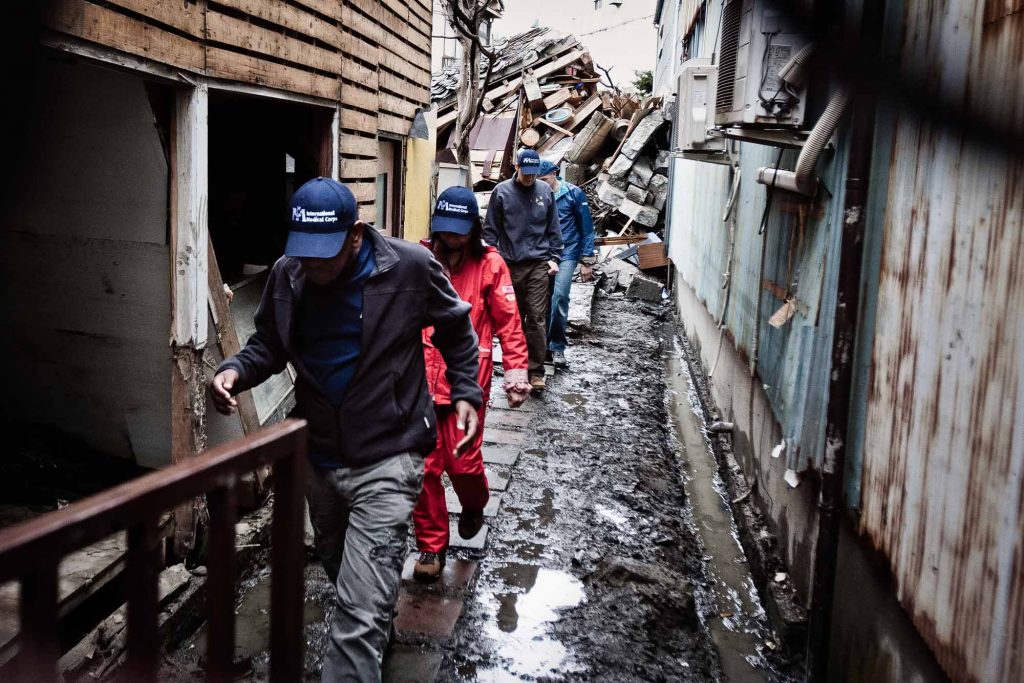
Disaster in
Japan
Japan earthquake and tsunami: Our Response
International Medical Corps was on the ground 48 hours after a magnitude 9.0 earthquake rocked Japan in March 2011, triggering a devastating tsunami and subsequent radiation crisis. Our teams provided immediate assistance in the first days and weeks of the response and stayed to work with local partners to help families rebuild and recover in Fukushima Prefecture.
While Japan has significant capacity to manage emergencies, the magnitude of this disaster – coupled with the threat of radiation exposure – was large enough to warrant international assistance. International Medical Corps supported local partners in delivering critical humanitarian services including delivering hot meals, medicines, telecommunications equipment and mental health and psychosocial services and training. We then built on our collaboration with local Japanese agencies to address ongoing humanitarian needs and support disaster-affected communities in becoming more resilient.
One major area of need identified by local organizations was the lack of places where displaced residents from affected areas could go to alleviate feelings of anxiety and loneliness. International Medical Corps supported the Japan Volunteer Center, Shapla Neer and The People to run community spaces throughout Fukushima Prefecture where evacuees can meet other evacuees; receive psychological support and critical information about available resources; and take part in recreational workshops and activities.
International Medical Corps also supported Fukushima’s evacuee children. We worked with The Association for Aid and Relief to install playground equipment for the Gangoya Temporary Housing Complex which is home to 264 families. Through our partner IVY, International Medical Corps supported the first day care center for children of evacuee families from Fukushima. The majority of IVY caretakers are themselves evacuee mothers.
In addition, International Medical Corps funded the Japan NGO Center for International Cooperation to establish and maintain a collaboration space for non-governmental organizations (NGOs) in Fukushima to facilitate information dissemination, networking, and collaboration among local community-based organizations, nonprofits, and international NGOs to assist Fukushima survivors and displaced families.
These local partnerships and relationships with Japanese authorities and communities helped International Medical Corps later respond to two earthquakes that rocked Kumamoto prefecture in April 2016.


